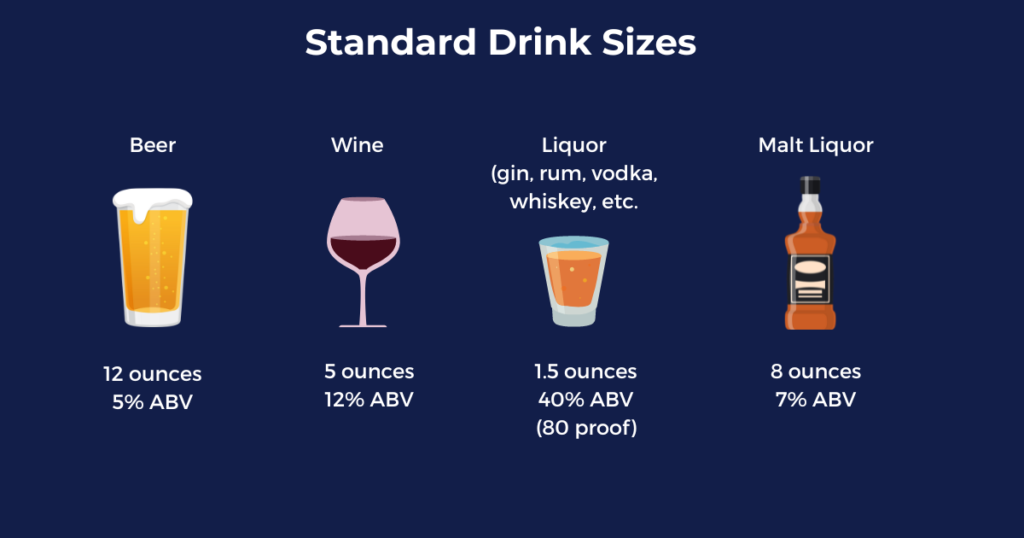UPDATED: 8/10/22
What is Binge Drinking?
Have you ever wondered whether you or someone you know has a drinking problem? There is no definitive answer to this question, but fortunately there are ways to accurately diagnose qualities of alcoholics, social drinkers, and binge drinkers. It’s important to keep these qualities and signs in mind if you suspect yourself or a loved one of possibly having an alcohol use disorder or addiction.
Moderate drinking for the average person is defined as 1 drink per day for women and up to 2 drinks per day for men, according to the U.S. Department of Health and Human Services. This establishes a baseline for what is considered healthy consumption of alcohol, according to the National Institute of Alcohol Abuse and Alcoholism. However, it doesn’t help us to define the guidelines for what constitutes alcoholism.
What Are Social Drinkers?

According to the NIAAA, those individuals who drink in low risk patterns are defined as social drinkers. This demographic is classified as consuming no more than two drinks per day for men or one drink per day for women, according to the Centers for Disease Control and Prevention. That equates to 14 or less drinks per week for males and seven or less drinks per week for females. Drinking less is always better for a person’s health than drinking more.
So what constitutes a drink? A helpful marker for designating drinks is that one drink is equal to: 12 ounces of beer (roughly 5% alcohol content), 8 ounces of malt liquor (roughly 7% alcohol content), 5 ounces of wine (roughly 12% alcohol content), or 1.5 ounces of 80-proof (roughly 40% alcohol content) aka whiskey, vodka, rum, or gin.

Social drinking is difficult to define because different cultures and environments may tolerate disparate levels of inebriation. However, for the sake of clarity, social drinking should be defined as drinking within the safe limits of alcohol use and not becoming intoxicate to the point that you are impaired. Some characteristics that accurately describe social drinkers are that they:
- Don’t feel the need to continually monitor the amount of drinks they intake.
- Don’t spend a disproportionate amount of time thinking about alcohol.
- Don’t feel the need to drink alcohol in order to have a good time.
- They never or rarely get into trouble for reasons related to alcohol consumed.
- Only drink alcohol on occasion.
- Don’t regret things that they say or do while under the influence of alcohol.
The difficulty in diagnosing social drinking is that many people who could be considered alcoholics are likely in denial about the severity of their addiction. The transition from social into binge drinking can occur over a long period of time, and the individual is often unaware or unwilling to acknowledge this change. It is only when they are forced to make a change that the problem truly becomes apparent.
What Are Binge Drinkers?
Binge drinkers are considered as the transitional phase between social drinkers and legitimate alcoholics. Binge drinkers can be considered as anyone who surpasses the consumption limits for healthy drinking outlined by the NIAAA. Signs that someone could be a binge drinker include:
- Lapses in work or home responsibilities
- Feeling that they can only have fun by getting drunk
- DUI or other legal trouble
- Continued or involuntary alcohol use despite negative consequences
- Alcohol usage leading into dangerous or negative situations
Binge drinkers may be able to function in work and life to a variable degree, but it is likely that they cannot sustain their continued alcohol usage. If their patterns of usage continue, they run the chance of their body adapting to the high levels of alcohol within their bloodstream. If this occurs, then they are more likely to continue abusing alcohol, due to the negative side effects that occur when alcohol is no longer present in their body. This is what constitutes a chemical addiction.
Individuals who binge drink run a considerable amount of risks that are similar to those faced by full blown alcoholics. Alcohol is a toxic substance that absolutely causes damage to the body, even in small doses. Binge drinking puts people at risk for developing high blood pressure, certain cancers, and increased exposure to dangerous situations.
What Are Alcoholics?
Determining if you or someone you know has a alcohol use disorder isn’t as simple as counting the number of drinks consumed each week. Unhealthy alcohol use includes any kind of drinking that puts your health or safety at risk or causes other alcohol-related issues. This can include binge drinking, or using alcohol as a way to function in your daily life. If you’re not able to limit the amount of alcohol you drink or can’t resist cravings to drink there’s a good chance you have an alcohol use disorder and need help.
Another way to define alcoholism is anyone who exceeds binge drinking that brings Blood Alcohol Content (Or BAC) to levels above 0.08 per session, more than five times per week. According to the NIAAA, roughly 72% of people have a single period of heavy drinking (usually between the ages of 18-24) that they eventually grow out of. For most, growing out of this stage is normal, but for alcoholics, these patterns of usage only continue or worsen.
High Functioning Alcoholics are those individuals who are able to partially separate their addiction from their daily responsibilities. Typically, these people tend to minimize their alcoholism by labeling it simply as a hobby, occasional indulgence, or heavy bout of drinking. Many high functioning alcoholics develop a tolerance to alcohol, hide their intoxication and are able to accomplish many daily tasks. The truth however, is that an alcoholic is defined by that person’s relationship to alcohol, not how their relationship to alcohol appears to the rest of the world. Here are some telltale signs of alcoholism to look out for if you suspect yourself or a loved one of being an alcoholic:
- Using alcohol as a reward for accomplishments or relief.
- Drinking every day.
- Living a double life that separates binge drinking from work or home life.
- Consuming five or more drinks in in one sitting two or more times a week.
- Having difficulty imagining a life without alcohol.
- Experiencing chronic blackouts and not being able to remember what you did for a period of time.
- Alternating between feelings of guilt and shame towards drunken behavior.
- Behaving differently when drinking.
- Choosing to be around other drinkers than with family or friends.
- Failed attempts to stop drinking.
- Continually getting drunk before arriving at parties/bars (pre-gaming).
- Breaking personal limits on number of drinks consumed in one sitting.
- Driving while intoxicated, even without arrest.
- Inability to control alcohol consumption after their first few drinks.
- Family members or friends express concerns about drinking patterns and negative behavior.
- Engaged in risky sexual behavior while under the influence.
- Constantly thinking about the next drink, how recently they’ve drunk, how much they have drunk.
- Always having to finish an alcoholic beverage.
When to get help for a drinking problem?
Deciding to ask for help, including alcohol addiction treatment, can be a hard choice. Many people with alcohol use disorder refuse to admit they have a problem. If you’re not able to control the number of drinks you have in one sitting, or find yourself breaking set limits it may be time to seek help. Often close family or friends will see there is a problem and may be able to persuade a person to explore treatment options. An intervention can help someone recognized and accept that alcohol has taken control of their life, or at least become a priority. Listen to trusted friends and loved ones. Consider talking to someone who has experienced an drinking problem and found recovery. Alcohol detox could be needed for someone who drinks every day.
Next Steps
Alcohol rehab centers near you can secure an appropriate alcohol detoxification and rehabilitation treatment program for you or a loved one, quickly and discreetly, and close to home if that’s what you’d prefer. If you’re worried about a loved one or your own relationship with alcohol, reach out to someone who can help. At Landmark Recovery’s treatment centers, we work to free addicts from the inner prison of substance dependence and abuse.

Choose Recovery Over Addiction
We're here 24/7 to help you get the care you need to live life on your terms, without drugs or alcohol. Talk to our recovery specialists today and learn about our integrated treatment programs.






